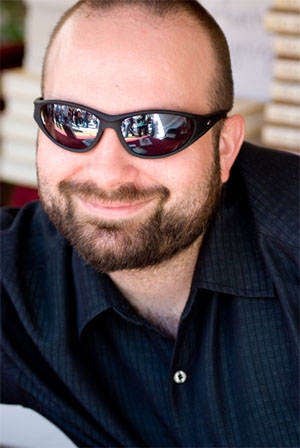Applauding
the Gods
Why we clap at the movies
I’ll never know. Flutter of
hands as the gaffer, key grip,
best boy, take their slow bows
of ascension, those faceless
angels of the film industry
nowhere around, exit music
rolling over reluctantly like
a mother making room.
A friend of mine worked
as an electrician’s assistant
on The Big Lebowski, and
even if this were that film
he wouldn’t hear. Playing
poker once he told us how
his mother cried at the credits,
every time; she said that now
he’d live forever. Immortality
for plugging in a boom mike,
he said, think of that. And I do
think of that, wonder who
here knows someone that
knows someone, who’ll rush
home to a yearbook, giggle
at Cameraman Two’s old
fu manchu, his hundred frames
of heaven. But we stand
and clap as if congratulating
each other on a job well done—
two hours of getting all the
punchlines, meeting the end
with just enough anticipation.
Overhead and unseen someone
changing reels feels pleased;
the ushers in the corners grab
their brooms and begin to nod.
first
published in Los
Angeles Review
Cheers
They could have been us
hours ago. Two figures
huddled hip to hip in their
parkas like one big foam
finger for the sky’s yearly
coughing of sparks and
spangles, these percussive
pops that stand in so often
for independence, the blank
case, the empty shell.
It took the human race
five thousand years to invent
nothing as a concept, I think,
my headlights flashing their
coupling of ooh and ahh,
their addition by subtraction,
long division into unity,
two faces to one mouth—
a numeric ideal found
faster than zero, harder
to lose. Any infant knows
the letter I, the silver look
of a mirror in white light.
They could have been us
studying the many shapes
of one hand inside another,
fleshy certainty of the body
as it tries on disappearance.
The crackle of gunpowder
through the car window,
the yellow sodium glow as
fallen angels of incandescent
ember halo their hair.
Could have been us if only
we’d dressed for the weather;
these cold desert nights,
this copper chloride blue.
first published in Lungfull!
After Hopper
Nighthawks, 1942
She says that everything is after Hopper.
That posh hotel—you looked about to slap her,
but never did. Sometimes she’d wait at night
in her blue robe, face folded like the note
you didn’t leave crumpled in a coat pocket.
Sometimes she’d stand in broad daylight, naked
before an open window, flesh so pale
and round and full it seemed about to pull
a tide of ruttish men up from the street.
But mostly it’s the red dress. The cut straight,
sleeveless, loose. And her mouth is only lipstick.
She says you never even see her talk,
but just about to talk, about to smile.
She says that every moment is a jail;
this diner is her prison of endless light,
the ceaseless hour always getting late—
yet no one moves. Her cigarette remains
unlit. The busboy doesn’t lift his hands.
You could write a thousand lines, she says,
on all the things she never does or has.
How she seems so sad she might have cried.
How you only see her almost satisfied.
first published in The Pedestal Magazine
© 2009 Timothy Green

|

|

